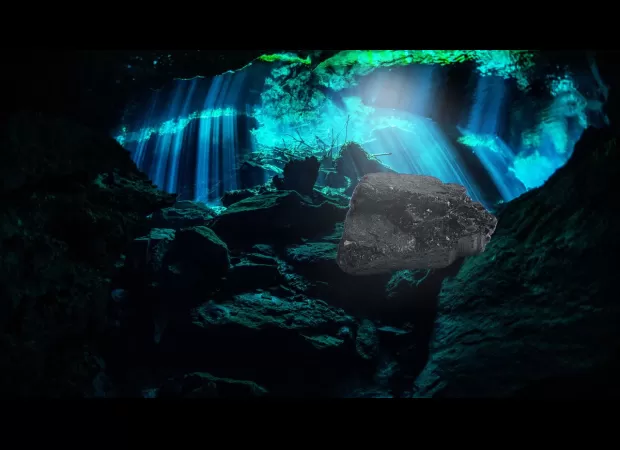Deep in the ocean, scientists made a significant finding - the presence of dark oxygen, a groundbreaking discovery.
New research has revealed the existence of "dark oxygen" in the deep, lightless regions of the ocean. This discovery is reshaping our understanding of marine oxygen production and has important implications for the environment.

Deep in the uncharted depths of our oceans, where sunlight cannot reach and the pressure is overwhelming, something extraordinary has been discovered by scientists: the existence of "dark oxygen." This groundbreaking revelation is challenging our previous understanding of how oxygen is produced in the ocean and has far-reaching implications for marine life and beyond.
Despite oxygen being a vital component for all life on Earth, it's easy to forget that half of the oxygen we breathe actually comes from the ocean. While we typically associate oxygen production with plants on land, it turns out that the ocean plays a crucial role as well.
Traditionally, it was believed that marine plants and phytoplankton were responsible for producing oxygen through photosynthesis, a process that requires sunlight. However, the discovery of dark oxygen in the deep ocean has turned this assumption on its head.
At an astounding depth of 5 kilometers, where sunlight cannot reach, scientists have found metallic nodules scattered on the seafloor that have the ability to produce oxygen. These nodules, made up of natural metals, undergo a remarkable chemical reaction that splits seawater into hydrogen and oxygen, similar to how batteries generate electricity. When these nodules are submerged in water, they act as natural batteries, creating electric currents that split water molecules and produce oxygen without the need for sunlight or biological processes.
To confirm this phenomenon, researchers conducted laboratory experiments using metal nodules collected from the seafloor. The results were astonishing, as the electric currents generated by the nodules were comparable to those produced by a standard AA battery. When these nodules are clustered together on the ocean floor, they have the power to split water molecules and produce oxygen, without any reliance on sunlight or living organisms.
The discovery of dark oxygen has significant implications for marine life. The deep ocean is home to a diverse array of unique and mysterious creatures, from bioluminescent anglerfish to the elusive giant squid. The fact that there is a source of oxygen at such great depths suggests that there could be entire ecosystems sustained by this dark oxygen. This discovery prompts a reevaluation of the deep ocean's biodiversity and the mechanisms that support life in these extreme environments.
But the implications of dark oxygen go beyond our own planet. The possibility of battery-powered oxygen production raises the question of whether similar processes could occur on other moons and planets. For example, Europa, one of Jupiter's moons, has a subsurface ocean beneath its icy crust. The presence of metallic compounds and water on Europa raises the exciting possibility of dark oxygen production, potentially creating oxygen-rich environments where life could exist.
However, this groundbreaking discovery faces a significant threat: seabed mining. Several mining companies have plans to extract these valuable metallic nodules from the ocean floor, which could disrupt the newly discovered oxygen production process and devastate marine ecosystems that rely on it. The region where these nodules were found, the Clarion-Clipperton Zone, is already a hot spot for seabed mining exploration.
The US National Oceanographic and Atmospheric Administration has warned that seabed mining could have disastrous consequences for marine life and habitats in the mined areas. In response, over 800 marine scientists from 44 countries have signed a petition urging a pause on seabed mining activities. They stress the importance of fully understanding the environmental impact before proceeding with such operations.
The discovery of dark oxygen is a reminder of how much we still have to learn about the deep ocean. It's often said that we know more about the surface of the Moon than the depths of our oceans. Before we rush to exploit these underwater resources, it's crucial that we fully comprehend their role in the ecosystem.
Protecting the deep ocean and its secrets is crucial. The discovery of dark oxygen is a testament to the mysteries that our planet still holds. As we continue to explore and understand these hidden realms, it's essential to balance our quest for knowledge with the responsibility to preserve and protect these fragile ecosystems.
8 Views






